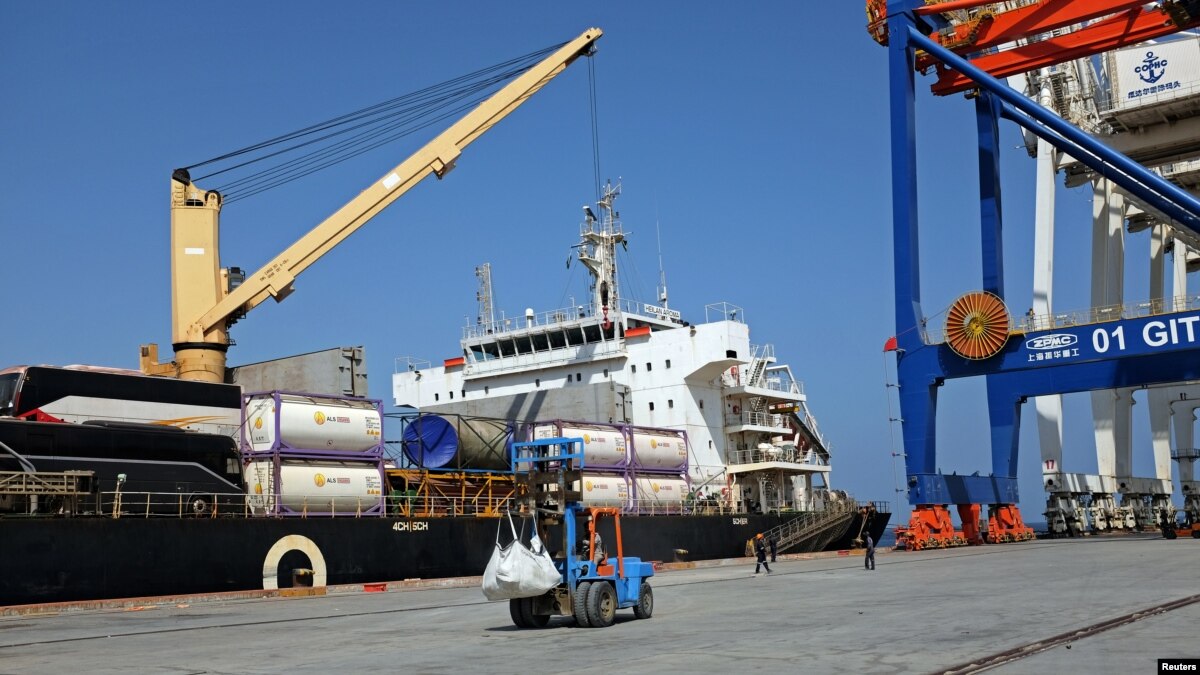
Pakistan and China have jointly organized the first international exhibition to showcase the significance of the Arabian Sea Gwadar Port and its economic free zone as an emerging international business hub.
The warm water deep sea commercial port, which overlooks some of the world’s busiest oil and gas shipping lanes, has been built and recently expanded with Chinese financial assistance.
More than 200 companies from both China and Pakistan were present in Monday’s event at Gwadar, while six Chinese provinces also sent their representatives, said Beijing’s ambassador to Islamabad, Yao Jing, while addressing the ceremony.
Foreign diplomats and business leaders were also invited to the opening session of the two-day event.
Chinese operators of the port say the Gwadar Free Zone shall bring extensive economic benefits, like a tax holiday for 23 years and land lease up to 99 years to the upcoming businesses along with other incentives and pro-business policy frame work for general trade, services, manufacturing, logistics, trans-shipment and bunkering business.
Direct benefit for Pakistan
Gwardar port is to be a trans-shipment hub connected to landlocked western Chinese regions, giving Beijing a secure and shorter international trade route through Pakistan.
Gwadar is celebrated as the gateway to the China-Pakistan Economic Corridor, or CPEC, a flagship of President Xi Jinping’s global Belt and Road Initiative to build a new “Silk Road” of land and maritime trade routes across more than 60 countries in Asia, Europe and Africa.
Under CPEC, networks of road, communications, rail, economic zones and power plants are being built and upgraded in Pakistan with an estimated Chinese investment of $62 billion.
Around $27 billion in projects are underway or completed, including “early harvest” energy projects, adding much-needed electricity to Pakistan’s national grid.
“I would like to say that the Chinese government will continue to invest and send our input to further support the development of this project. Also, we will encourage Chinese companies and Chinese businessmen to join the development of Gwadar,” vowed Chinese envoy Jing.
Wider benefit planned
During the ceremony, Pakistani Prime Minister Shahid Khaqan Abbasi said CPEC is the “most visible part” of China’s of BRI, saying the mega project will cater not only to the needs of his country, but to the needs of the region.
Officials expect Gwadar’s cargo handling capacity to increase to 1.2 million tonnes by the end of this year and it will be able to process about 13 million tons by 2022, making it the largest port in South Asia.
Chinese partners say they would need around 38,000 skilled workers by 2023 for the Free Zone, according to Dostain Jamaldini, Chairman of the Gwadar Port Authority. He says of the 2,500 current workers, around 500 are Chinese nationals and the rest are locals.
An international airport with a 12,000 meter runway is being constructed in the once sleepy town with a Chinese financial grant of around $300 million.
The Arabian Sea port is located in Pakistan’s largest province of Baluchistan where militant groups, including Islamic State, and a low-level insurgency remain key security challenges to CPEC.
Additionally, the corridor runs through Pakistan-controlled portion of the divided Kashmir region, drawing objections from rival India. The United States suspects China may also turn Gwadar into a military base.
But Chinese officials reject those concerns, maintaining “CPEC is merely an economic cooperation project,” and Islamabad dismisses New Delhi’s opposition as politically motivated.
Read More Pakistan, China Jointly Showcase Arabian Sea Gwadar Port : http://ift.tt/2El25QJ
No comments:
Post a Comment